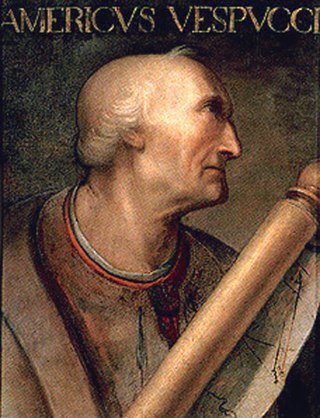
Amerigo Vespucci was an Italian explorer and navigator from the Republic of Florence, from whose name the term "America" is derived.

Richard I was King of England from 1189 until his death in 1199. He also ruled as Duke of Normandy, Aquitaine, and Gascony; Lord of Cyprus; Count of Poitiers, Anjou, Maine, and Nantes; and was overlord of Brittany at various times during the same period. He was the third of five sons of Henry II of England and Eleanor of Aquitaine and seemed unlikely to become king, but his two elder brothers predeceased their father. Richard is known as Richard Cœur de Lion or Richard the Lionheart because of his reputation as a great military leader and warrior. The troubadour Bertran de Born also called him Richard Oc-e-Non, possibly from a reputation for terseness.
A binary number is a number expressed in the base-2 numeral system or binary numeral system, a method of mathematical expression which uses only two symbols: typically "0" (zero) and "1" (one).
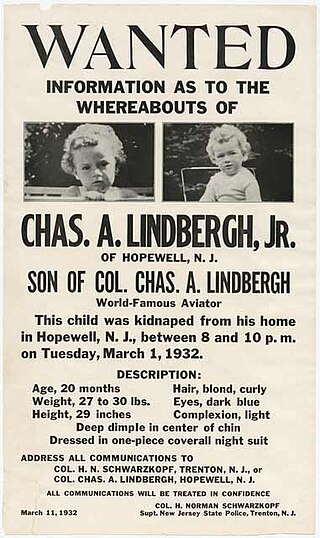
On March 1, 1932, Charles Augustus Lindbergh Jr., the 20-month-old son of colonel Charles Lindbergh and his wife Anne Morrow Lindbergh, was abducted from his crib in the upper floor of the Lindberghs' home, Highfields, in East Amwell, New Jersey, United States. On May 12, the child's corpse was discovered by a truck driver by the side of a nearby road.
Radical centrism, also called the radical center, the radical centre, and the radical middle, is a concept that arose in Western nations in the late 20th century. The radical in the term refers to a willingness on the part of most radical centrists to call for fundamental reform of institutions. The centrism refers to a belief that genuine solutions require realism and pragmatism, not just idealism and emotion.
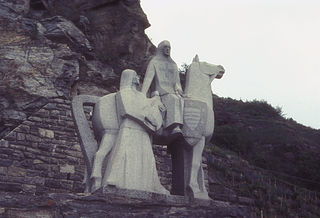
Blondel de Nesle – either Jean I of Nesle or his son Jean II of Nesle – was a French trouvère.

Isaac Doukas Komnenos was a claimant to the Byzantine Empire and the ruler of Cyprus from 1185 to 1191. Contemporary sources commonly refer to him as the emperor of Cyprus. He lost the island to King Richard I of England during the Third Crusade.
Kevin Price Phillips was an American writer and commentator on politics, economics, and history. He emerged as a Republican Party strategist who helped devise its Southern Strategy in the 1960s. Phillips became disaffected with the party by the 1990s, subsequently leaving it to become an independent and staunch critic of the Republicans. He was a regular contributor to the Los Angeles Times, Harper's Magazine, and National Public Radio, and was a political analyst on PBS' NOW with Bill Moyers.

A Life Less Ordinary is a 1997 British romantic black comedy film directed by Danny Boyle, written by John Hodge, and starring Ewan McGregor, Cameron Diaz, Holly Hunter, Delroy Lindo, Ian Holm and Dan Hedaya. The plot follows two angels who are sent to Earth to help make a disgruntled kidnapper (McGregor) and his hostage (Diaz) fall in love.
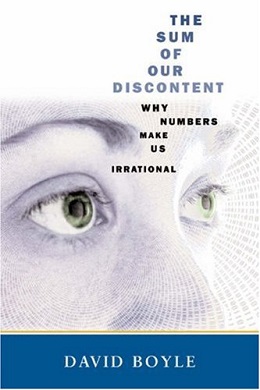
The Sum of Our Discontent is a nonfiction book by David Boyle. It was published by Texere in 2001. The tagline and theme of the book is "Why numbers make us irrational".

Eugene Joseph Dionne Jr. (2) is an American journalist, political commentator, and long-time op-ed columnist for The Washington Post. He is also a senior fellow in governance studies at the Brookings Institution, a professor in the Foundations of Democracy and Culture at the McCourt School of Public Policy of Georgetown University, and an NPR, MSNBC, and PBS commentator.

John Paul Getty III was the grandson of American oil tycoon J. Paul Getty, who was once the richest man in the world. While living in Rome in 1973, he was kidnapped by the 'Ndrangheta and held for a $17 million ransom. His grandfather was reluctant to pay, but, after John Paul Getty III's severed ear was received by a newspaper, the grandfather negotiated a payment of $2.2 million, and Getty was released five months after being kidnapped. Getty developed an addiction to drugs, including alcohol, soon after, eventually leading to an overdose and stroke which left him severely disabled for the rest of his life.

The New Economics Foundation (NEF) is a British think-tank that promotes "social, economic and environmental justice".
Blondel, a rock opera musical by Tim Rice and Stephen Oliver (music), was inspired by, and very loosely based on, the life of the eponymous French troubadour. The play is set during the period of the Third Crusade.
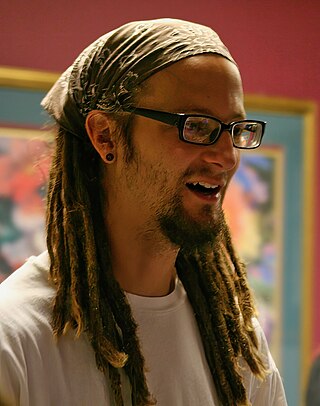
Shane Claiborne is an evangelical Christian leader, an author, one of the founding members of the non-profit organization, The Simple Way, in Philadelphia, Pennsylvania, cofounder of the Red-Letter Christians. Claiborne is also a social activist, advocating for nonviolence and service to the poor. He is the author of the book, The Irresistible Revolution: Living as an Ordinary Radical.
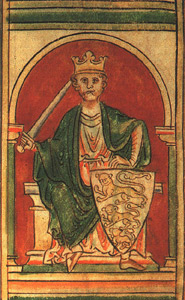
Richard Cœur-de-lion is an opéra comique, described as a comédie mise en musique, by the Belgian composer André Grétry. The French text was by Michel-Jean Sedaine. The work is generally recognised as Grétry's masterpiece and one of the most important French opéras comiques. It is based on a legend about King Richard I of England's captivity in Austria and his rescue by the troubadour Blondel de Nesle.

Richard I of England has been depicted many times in romantic fiction and popular culture.
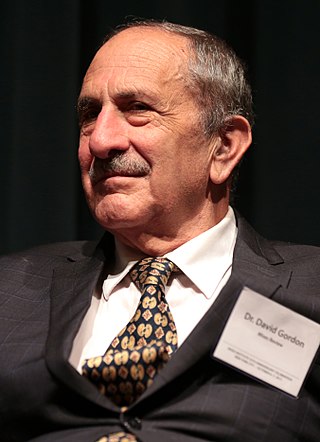
David Gordon is an American libertarian philosopher and intellectual historian influenced by Murray Rothbard's views of economics. He is a senior fellow of the Ludwig von Mises Institute, a libertarian think tank, and is editor of The Mises Review.

Debt: The First 5,000 Years is a book by anthropologist David Graeber published in 2011. It explores the historical relationship of debt with social institutions such as barter, marriage, friendship, slavery, law, religion, war and government. It draws on the history and anthropology of a number of civilizations, large and small, from the first known records of debt from Sumer in 3500 BCE until the present. Reception of the book was mixed, with praise for Graeber's sweeping scope from earliest recorded history to the present; others raised doubts about the accuracy of some statements in Debt.

Andrew Simms is an author, analyst and co-director of the New Weather Institute. He is a research associate with the Centre for Global Political Economy at the University of Sussex and Fellow at the New Economics Foundation.














